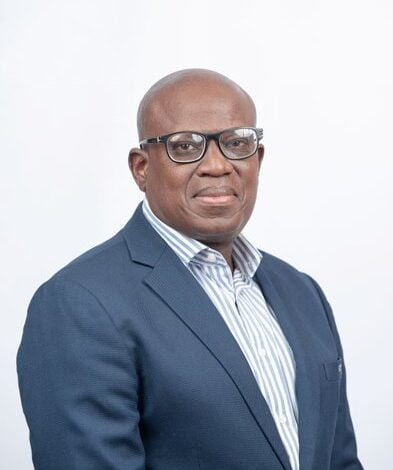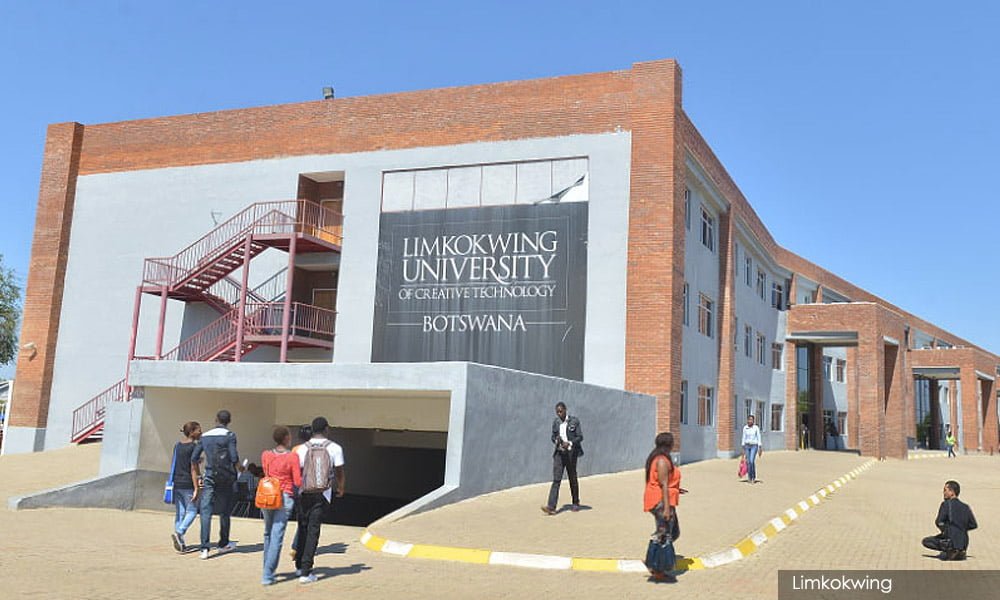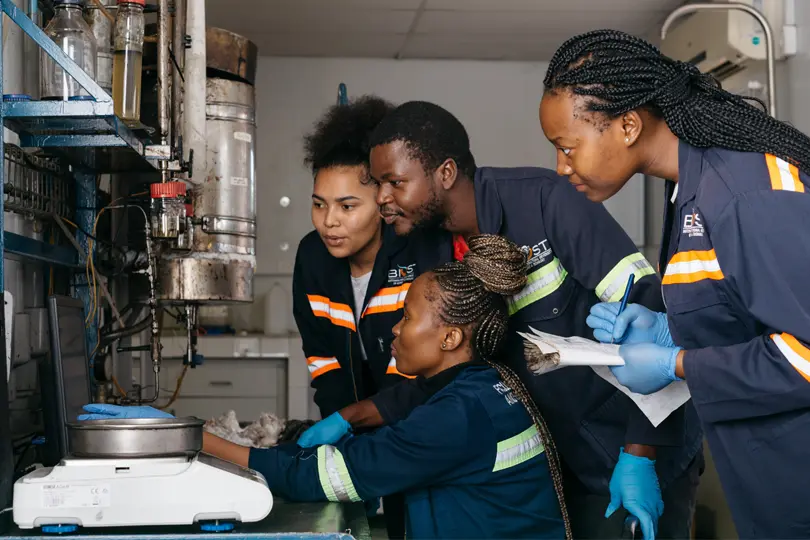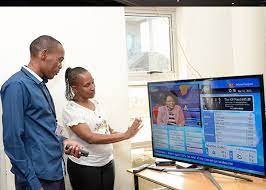Interview Thulagano Merafe Segokgo :”Our drive is towards a knowledge- and tech-based economy”
Although little known, Botswana is a model of democracy, good governance and socio-economic development. And like others, it is looking to digitalization to accelerate the pace and eventually become a regional technology hub and technology exporter. These ambitions are backed by Thulagano Merafe Segokgo, Botswana's Minister of Communications, Knowledge and Technology.

Although little known, Botswana is a model of democracy, good governance and socio-economic development. And like others, it is looking to digitalization to accelerate the pace and eventually become a regional technology hub and technology exporter. These ambitions are backed by Thulagano Merafe Segokgo, Botswana’s Minister of Communications, Knowledge and Technology.
Interview by Dounia Ben Mohamed
What are the mandates of your ministry and, by extension, Botswana’s ICT ambitions?
I think the name explains the mandate of my ministry. We deal firstly with the communications, what I would say is the ICT mandate in terms of implementing the infrastructure and services for information and communication technologies in the country and really for the economy.
Secondly is the knowledge mandate. And therein, really, we are of the view that there is the learned or taught knowledge that is acquired through the learning systems universities. But we are also very keen to develop what we call indigenous knowledge that has been passed down and acquired and sits with our citizens in the country.
Clearly the knowledge has got very much to deal with research and the output thereof, which then become the products when we talk about technology. And in the technology space and sector, we’re interested in building and bringing up startups that will innovate and commercialize out of the research.
Botswana is very resolute in its determination to implement ICT technologies and to do so in an inclusive manner. We don’t want to leave anybody behind
Botswana is very resolute in its determination to implement ICT technologies and to do so in an inclusive manner. We don’t want to leave anybody behind. And I say that because we have a strategy that we call the SmartBots strategy. A roadmap to stimulate the transformation of business, government and society through a series of key strategic initiatives and projects.
Therein are certain pillars, one of them being infrastructure for all and under that we really develop and we built connectivity across the country. We have a fiber backbone which is in excess of about 12,000 kms of fiber.
We have a village connectivity project which is forecast at connecting 500 village settlements. We have completed the first phase of this project and we are running two parallel phases, the second and third, which will enable us to connect all these villages by 2025.
I think you could take note that we have participated in the GiGalab. So, we are part of the Giga connect (an initiative launched by UNICEF AND ITU to connect every school to the Internet and every young person to information, opportunity and choice). We have our schools mapped to see the progress that we’re making. With 1031 schools, we are sitting at roughly 50 plus percent connectivity. We’re sitting at an average of 5.9 megabits per second connectivity on those schools. But our ultimate intent and what we are doing is that we want to give all of these schools connectivity at speeds of 100 megabits per second. That’s a standard that we have set.

Parallel to that, through the Ministry of Education, there’s a project that’s running to provide for laptops to students and that’s progressing well. We’ve done that for the senior secondary schools. We are now moving down to what I call junior technical schools and then we’ll be sent down to the primary level secondary schools.
I hope that gives a sense of what we have been doing on an infrastructure side. But in addition, there are daily services. It’s not the infrastructure in itself.
What is critical for us is not so much that government provides online but most importantly that the private sector itself does so
But from a perspective of the government we have got what I call online services that we are building and we have 128 of them ready for deployment or let me say ready to be launched. It is really that we just want to onboard the citizens for a utilization program. It’s a moving target but we have a target of an excess of 500 plus more services that we intend to put on and I expect that substantial progress will be made in this year in that regard of that number.
But what is critical for us is not so much that government provides online but most importantly that the private sector itself does so. To that end, we are very determined to implement what’s called an e-ID system. We have currently in fact an identification system which we call Omang which is quite Effective. But we want to add features and functionalities to this in the new ID that will enable us to have far better, tighter security and authentication of our citizens. In fact, even the current one permits us to travel between us and Namibia just using the ID. You don’t necessarily have to apply for a passport to do so.
High ambitions for which Botswana is investing, particularly in terms of research and development?
Indeed. In terms of research and innovation We are doing two things very critical. We’re setting up a research fund to ensure that we increase our spend on research and development. That’s our target. We want to increase the number of patents and so forth. In the country, currently we have a couple of research institutions and universities: the university of Botswana, the Botswana International University of Science and Technology, and the Botswana University of Agriculture and Natural Resources. But there are others, I’m just making note of that. There are other universities, they do substantial research. But I also have two institutions in my ministry, one is called the BITR, the Botswana Institute for Technology Research and Innovation and another is called the Botswana Digital Innovation Hub and the BITR has been doing substantial research work in areas of solar, building materials in mining and mining processes and metallurgy and also filtration systems. So, we have even developed our own fiber nanofibers for doing masks and these were tested in the US. Therefore, there’s a substantial amount of work that’s been done. But I would like to also take note of research that’s been done in relation to the testing of the foot and mouth disease, which is a major disease that affects livestock in the African continent. We have now developed a kit so you can just test it like you normally would test the HIV thing, making it very simple for the farmers to test to get results and to get the interventions very fast.
So, this is an area concerning vaccine production and the research around test kits for various disease in livestock, but also that also on the human side that we are becoming quite involved in. In fact, we’ve attracted interest from companies in the US who are keen to come and set up and develop vaccine manufacturing, but also certain treatment of certain pharmaceuticals, particularly in the areas of cancer and innovative drugs. So, it speaks to our intent to increase and to build our research output. In fact, rather, I should just say to you that our drive is towards a knowledge- and technology-based economy. And we understand that we must do this with purpose, with urgency.
It is our human capital that will drive growth
The aim being to become an exporter of knowledge and technology. Where do you stand in this ambition? What is the ICT sector’s contribution to GDP? And what is the target now?
It’s a very good question and indeed the contribution of ICT to the GDP sits below about 5%. But we know that and we believe that if we implement our mandate well as a ministry, we should be able to increase that contribution by 10%. And mind you, Botswana has a vision. It’s called a vision 2036 where really what is critical to the mandate that I have as a minister is that we must have a prosperous society offering prosperity to all. And there are three other elements to it. But I want focus partly on this vision, this part of the Vision.
We are an upper-middle-income economy. And our intent is to be a high-income economy. This is why I’m speaking about the mandate, which I have as a minister to try and actually drive the contribution of the ICT and knowledge sectors to the economy to literally get us to the 2025 target.
Botswana success so far has been on the back of minerals and more particularly, diamond and we want to really change this now, to a point where it is where an export led country where a knowledge-based economy and it’s our human capital that will drive growth.
In terms of innovations, I think there’s quite a lot that we’ve done with startups in the ICT sector. Certain manufacturers, for example. produce a very good solar lighting system that they try to implement across the country and various other startup companies are doing quite impressive work, whether it is in Digitech, which is now assembling cell phones and so forth. And these are products of our digital innovation. So, there is a strategy to support the local startups

As I said, the funding of itself is very critical. But the digital innovation hub, its mandate, quite aside from running a science and technology park, is to mentor and develop these startups and to bring them to a point where they are able to enter the market and provide commercial products.
So, some of them even have had success in terms of selling their services in Africa. Some of them consulted in Rwanda, into the DRC and so forth.
Are you linked to other ministries? Because ICT is not just about your sector, it is about all sectors. And with the private sector and civil society?
Yes, the answer is the answer is yes. Primarily in the electronic identification system. Within my ministry, we have a department, which we used to call Department of Information Technology, but now we’re calling it shared services. This is the department responsible for ensuring and providing the platforms that are the core platforms in government but in economy as well. The electronic ID is one such. Now let me give you an example. it’s not for the purposes purely of government and governing to know who is interacting and transacting with or facilitating the transfer of land or marriage or that sort of. But, you know, it’s for banking institutions as well to be able to valid for insurance institutions to be able to access and provide medical insurance services. This applies for both the government and the private sector. We’re developing an open data open science policy that facilitates this sharing of knowledge so that it is for the entire economy.
As far as connecting with other ministries is concerned, we already provide 500 online services. Whether you are applying for a piece of land which you are entitled to as a citizen in Botswana? Or in a case where you are applying for your national ID card and that is in another ministry? Or a case where you are applying to enter into a secondary junior school, university, ministry of education? These are all different ministries, but indeed, are all connected.
I spoke about the fiber backhaul, which I said saying we use microwave as well. But the point I really want to get to in respect of this aspect of our connectivity is that we do even operate what’s called a government multimedia network. It facilitates the connectivity of all our ministries at a physical network layer, but also in terms of buses and interoperability of systems across ministries. This is where indeed we’re very much connected and our vision is not one which is centered around government. We want to ensure that we reduce the stake or what I would say the proportion of influence of government in the economy so that it’s driven by the private sector.
Based on your experience in Botswana and your achievements, what are your recommendations to accelerate digital transformation in Africa and make a greater impact for the economy and people?
What comes to mind immediately is the importance of building an infrastructure that connects the continent. You know, sometimes we’ve been focused, on connectivity to the Internet and to undersea cables. Primarily, I think so that we are connected to the already advanced developed world. I think it’s necessary as African countries that we pay substantial attention to the connectivity on the continent so that I access content in the Congo when I’m transiting through Zambia into the Congo and that sort of. So, there’s the infrastructure side that we must really address.
We cannot continually consume content and services from other countries, and we must do this as a collective
But critical and most important as well is that we must build the content and services that are particularly relevant to Africa. We cannot continually consume content and services from other countries, and we must do this as a collective.

It is very, very important. I think that we understand that there’s huge potential and when we do it as a collective that there is opportunity for all of us, for all our citizens, because we know that we are challenged as Africans by a substantial amount of unemployment.
It’s a humongous task in a way. When I if you were to try and attempt as a country individually or alone, you are just not going to say you are replicating efforts done in other countries. We need not really be inventing the wheel across all the different nations. These are two very critical aspects to me.
And This implies something here. That we must pay attention to the interoperability, the ability to exchange and share information across the continent, to facilitate trade, to facilitate human movement. So that we transact seamlessly in the continent.
But this, I think, are the very critical aspects that are potentially missing, but it addresses a very critical aspect, which is our youth unemployment. Which if we don’t address, Africa will miss the train…
Interview by Dounia Ben Mohamed






